Somer Oberlin‘s first week as chief of the Weaverville Police Department didn’t go exactly as planned.
“The agency flooded,” says Oberlin, who replaced retiring chief Ron Davis on April 1. “We had a waterline break, so the officers came into inches of standing water. Our floors are torn up, and the drywall’s torn out. It looks like a tornado went through it. I thought at first it was trial by fire, but I guess it’s actually trial by flood.”
Such is life in a small-town police department, where the challenges keep coming, but the resources don’t.
“Small-city policing has some advantages in having close community relationships,” says Oberlin, who has served in a variety of roles at the department since 2014. “Our community expects services that they would get in a big city, but we don’t have that. We wear many hats. So, our investigator doesn’t get to focus on a specific type of financial crime; he investigates everything that comes his way. We just have to be certain to build partnerships and have great communication with the other agencies.”
For this month’s “Around the Region,” Xpress talked to Oberlin and five other area police chiefs about how smaller law enforcement agencies address crime, public safety, recruitment and retention, community relations and other issues. The other participants are David Adams, Waynesville; C. Thomas Jordan, Brevard; Blair Myhand, Hendersonville; Steve Parker, Black Mountain; and Daniel Terry, Fletcher.
What are the biggest crime and safety issues facing your city? What initiatives or strategies has your department implemented to address them?
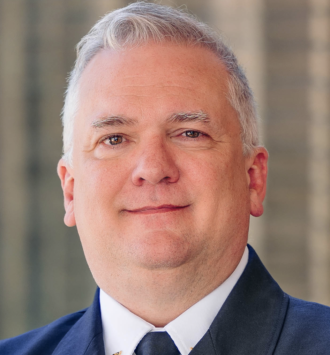
“Drugs and property crime remain at the top of our list of challenges. We are using community outreach to raise awareness for both issues. Partnering with the community can help reduce property crimes and identify drug offenders. We have also partnered with other law enforcement agencies to address some of the larger drug issues we come across.” — C. Thomas Jordan, Brevard
“Every city in America faces the new challenges of today: Disproportionate increases in mental health issues, dangerous drugs — fentanyl, meth, heroin — and the daily increase of homelessness. Being homeless or having mental health issues is not a crime. However, the increase in calls for service in all these areas is becoming overwhelming to law enforcement. Most of these issues are societal issues that the police are expected to solve. Services have increased in many of these areas, but law enforcement is the first interaction at the crisis point. Law enforcement is not funded to solve social issues, nor should that be the role; however, crisis units are not responding on the scene of a suicidal subject with a gun, or an overdose victim from fentanyl.”— Steve Parker, Black Mountain
“Mental health, homelessness, illegal drugs and motorist/pedestrian safety top our list of concerns. We are putting most of our efforts into combating these challenges more than any other. We started a traffic safety team in 2023 to drive down our crash rate numbers. We are starting a co-responder program this summer. We are exploring alternatives to traditional policing methods. Hopefully, we will soon begin to see a positive impact in addressing these lingering challenges.” — Blair Myhand, Hendersonville
“Our most prevalent crimes are larcenies/shoplifting and illegal drug sales. Waynesville enjoys a low violent-crime rate. Illegal drugs lead to other crimes, such as larcenies and break-ins. We have a TAC [Tactical Anti-Crime] unit and drug detectives that concentrate on high-crime areas. Also, we have assigned detectives to the federal task forces: DEA, ATF and Homeland Security. These partnerships have opened the door to more resources, which has led to multiple drug arrests.”— David Adams, Waynesville
“Fletcher is a relatively safe community. However, criminals travel. Fletcher has Interstate 26 and U.S. Route 25 running through town. These roads connect Asheville to Hendersonville and then to Greenville, S.C. About 80% of all arrests in Fletcher are people who do not reside in Fletcher. In more serious cases, such as felonies, the rate is even higher. Being visible and proactive in the community is paramount. Officers are diligent, even for minor offenses or signs of disorder that may impact the community negatively. Identifying and addressing minor offenses deters more serious offenses and makes Fletcher an uncomfortable environment for would-be criminals.” — Daniel Terry, Fletcher
“Our higher-crime areas are Walmart and some of the high-density housing areas where we have a concentration of people and limited personal space. We recently got camera trailers that we can put out to remotely monitor areas and have officer presence without manpower there. We have built relationships with loss prevention and with the managers of the high-density housing units. As far as safety, traffic congestion and road closure events give us the most heartburn. The town recently bought [more effective traffic barriers] so that we can close roads with more than just dragging a plastic barricade or cone down the road.” — Somer Oberlin, Weaverville
How does law enforcement in small cities differ from policing in larger urban areas like Asheville?
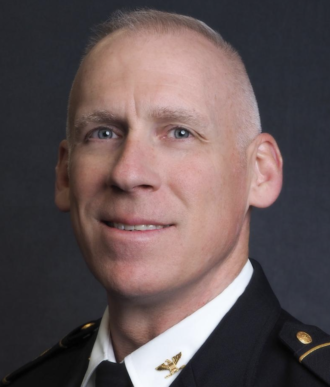
“The fundamentals of policing are global, but the practice of it is local. The way officers police in any community should reflect its expectations. A larger city does not always have more complex challenges than a smaller city. Population alone does not control what challenges a department faces. The quality of the police service can become the greater issue. Then, maintaining a high quality of service in perpetuity becomes our greatest challenge.” — Myhand, Hendersonville
“The needs and expectations of law enforcement are unique to their community. Large urban areas tend to have more staff and resources that can be reallocated to address needs or implement programs. A smaller agency may find it difficult to implement programs due to lack of resources. Large areas often have numerous neighborhoods within the larger community. Different neighborhoods often have different and sometimes conflicting needs and expectations. An advantage to the small agency is the ability to know the members of the agency more intimately, making problem-solving easier through communication and teamwork.” — Terry
“Smaller cities investigate similar crimes, but on a lesser scale. We have closer community and business relationships than bigger cities, which helps foster mutual respect and support. The challenges vary from city to city, but smaller agencies have less funding, less access to new technology/infrastructure and competitive salaries.” — Adams
“The core duties of policing are the same: law enforcement, community outreach, public service, etc. Depending on where you are, you tend to see fewer of the more serious offenses. The challenge is keeping your agency ready for those more severe calls since they aren’t occurring as often. Larger cities can see those more severe calls daily, while smaller communities may only see them occasionally. Regardless, we must be ready.” — Jordan
“In my experience, there is no difference between serving smaller or larger communities aside from politics. I have had the good fortune of working at the Mecklenburg County Sheriff’s Office — a large agency — and in Rock Hill, S.C. — a midsized agency, comparable to Asheville — and have served as the chief of Tega Cay, S.C., and Black Mountain, both small agencies. The expectation is the same, ensuring the safety of our citizens, crime prevention and reduction, collaboration, great service, and excellent community partnerships. That is the simple formula for a complex service industry.” — Parker
What efforts does your department make to build trust in the community, particularly among groups that may have negative perceptions of law enforcement?

“We are heavily involved in community engagement events, such as Coffee with a Cop, Public Safety Day, Special Olympics, neighborhood meetings, foot patrols and activities at the Pigeon Multicultural Community Center. Over the past four years, our agency has been able to diversify with female officers and officers of different ethnic backgrounds. Our police app is another tool that is being used to reach out to an array of groups and neighborhoods.” — Adams
“I have regular meetings with several different groups within the community. Building these relationships with our minority, business and educational communities is imperative. You can’t wait until a crisis to try to create a relationship. We are currently making a push to bring back neighborhood watches and have our police executives ‘adopt’ communities to be liaisons with on a regular basis.”— Jordan
“The Hendersonville Police Department was the first agency in North Carolina to complete the International Association of Chiefs of Police Trust Building Campaign. We have committed to 25 industry best practices that are designed to build and strengthen trust between us and our community. We communicate our efforts publicly and widely to demonstrate to our entire community that their trust is vital to us. Without the public’s trust in us, our effectiveness would be diminished.” — Myhand, Hendersonville
“Meeting the community and groups halfway to build relationships and partnerships is vital and has become a huge policing priority. In my three decades of law enforcement, I have seen a change in basic assumptions from expected heavy enforcement to focused education, heavy community investment, problem-solving and united community partnerships. Law enforcement has taken on the role of many hats, often causing society to blame them for societal issues such as homelessness, mental health, drug and alcohol abuse, and crime. We need society to understand the difficulties police face day in and day out. Trust is a simple formula built by mutual party investment, listening to each other, working together and taking the time to prove each party has the best interest at heart for the purpose at hand.” — Parker
“The Weaverville Police Department has focused on community outreach events for as long as I’ve been here. We start when our residents are young by having school resource officers, but also doing a lot of child-related events. We have many different community service projects that we get involved in. And just recently, I announced the introduction of a new position in our agency, a community resource officer who is going to focus solely on community policing initiatives, like foot patrols and problem-solving partnerships.We also do continued training with our officers so that they can work to understand different backgrounds. And we have a lot of avenues to receive feedback from the community.” — Oberlin
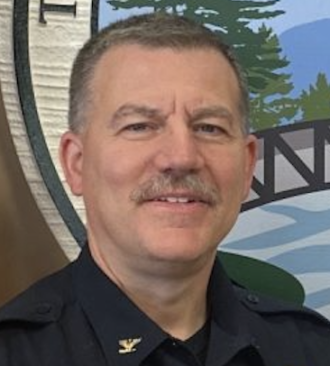
“Remember the basics: What are we in business for? There are an array of fancy terms and opinions as to what law enforcement should or should not do. This frequently distracts us from actually accomplishing goals and making progress. I expect officers to serve the community, create opportunities to improve people’s quality of life and be responsive to community needs, regardless of any group a person may belong to. If we focus on these basic goals, we will make a positive difference and that difference will build trust, change perceptions, and reduce the negativity faced by law enforcement.” — Terry
Asheville has had well-publicized struggles recruiting and retaining officers in recent years. How does your department approach training, recruitment and retention?
“Recruitment has become the single most complex issue facing law enforcement. The most important puzzle piece to solving that issue is placing the efforts on retention. Agencies need to have great leadership, better pay, stronger health and wellness programs and top-down leadership that believes in the services being delivered. When politicians speak out against the police as if we were all one body with no individualism, it has a serious cause and effect. No question that the negative portrayal of the police has led to the recruitment issue. Every officer who leaves because they do not feel appreciated costs the taxpayers $100,000 in recruitment, training, and equipment.” — Parker
“Police departments everywhere are facing employment challenges. No longer is law enforcement an attractive profession for most people. We must rebuild our reputation if we are to change people’s perception of us. Here we are defining our brand and establishing ourselves as a leader among other departments. Our officers must continue to feel valued and find purpose in what they do if we are to keep them. Competitive salaries are of great concern to officers.” — Myhand, Hendersonville
“It’s different for us. We had no officers leave within the last four years. The only vacancy that we have right now is the vacancy caused when Chief Davis retired, but throughout the issues in 2020 [after the death of George Floyd], we didn’t have anyone leave. Retention is only a problem for us because everybody gets here and stays so long that when they start retiring, the agency is going to empty by about 50%. I had the opportunity to sit down with about half of the agency, and they said that they stay here because we treat each other like family, and we have the benefit of being a small unit in that we know and care for each other on a personal level. We sit down with everybody and talk about what they’re passionate about and how we can put their training into an individualized path that’s geared toward what they’re passionate about.” — Oberlin
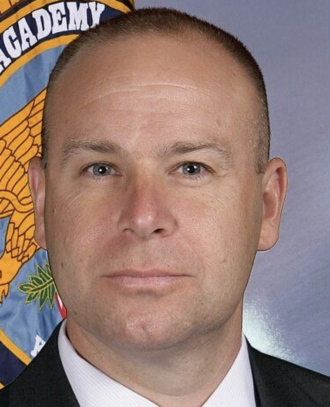
“We strive to hire those that fit the culture and expectations of the agency, those committed to serve and make a difference in the community. Hence, we only hire 20% of those who apply. Our primary approach is to create an environment for success within the agency under the theory that content and committed officers will be our best recruiters. Treat employees well and they will treat the community well. This leads to increased support and the right people applying to be officers at our agency.”— Terry
“We had a difficult time recruiting and filling several vacant positions from 2020-22. Our town recognized this and approved signing bonuses, paid for BLET [Basic Law Enforcement Training] and higher starting salaries for lateral transfers, if they had the required training hours. These efforts have helped us fill vacancies. The Waynesville Police Department has an excellent career track in place that provides a 5% raise every two years if the officers complete their required training hours. Retention has become an issue for officers with less than six years of experience, because we have fallen behind in starting salaries.” — Adams
“Every agency in the country is facing this issue. We have our challenges as well. We started a police cadet program that pays for vetted candidates to become police employees before their basic law enforcement training. It has been successful, and we look to continue using that program to attract quality candidates. We have also made changes in our pay structure to remain competitive with other local agencies.” — Jordan


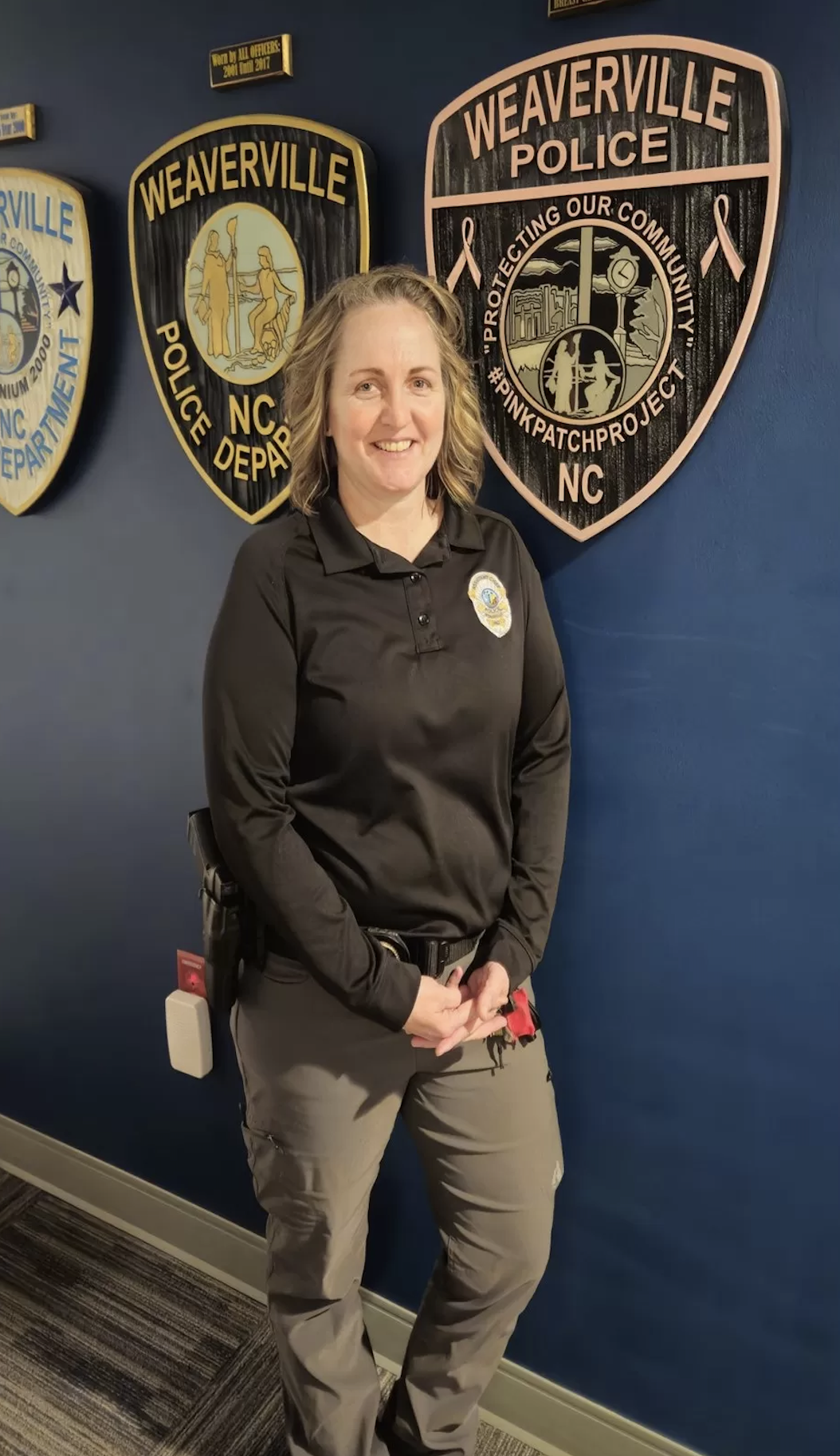
Before you comment
The comments section is here to provide a platform for civil dialogue on the issues we face together as a local community. Xpress is committed to offering this platform for all voices, but when the tone of the discussion gets nasty or strays off topic, we believe many people choose not to participate. Xpress editors are determined to moderate comments to ensure a constructive interchange is maintained. All comments judged not to be in keeping with the spirit of civil discourse will be removed and repeat violators will be banned. See here for our terms of service. Thank you for being part of this effort to promote respectful discussion.